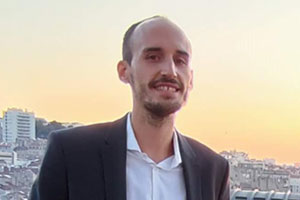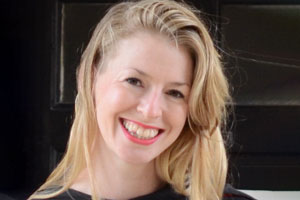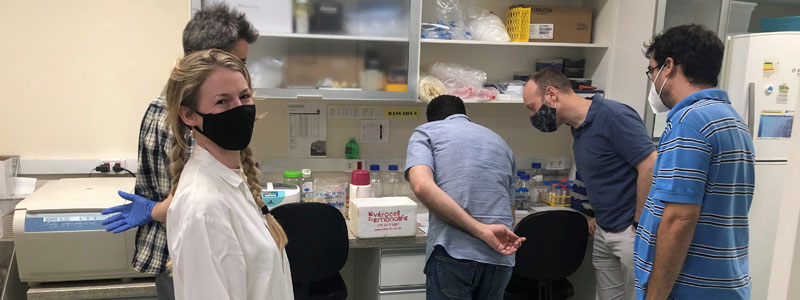Bunyavirus 2022: Journal of General Virology prize winners

Sergio Barata: “Functional Characterization of the Replication and Transcription Activities of Full-Length Hantaan Virus Polymerase” Best Poster Presentation Prize
Who or what inspired you to be a scientist?
Since I was a child, I connected a lot with nature and animals, so I directly started studying Biology. Since then, I realised that research was a great opportunity to discover and understand more about everything surrounding us.
What are you currently working on and what area of your research excites you the most?
As a PhD student, I am working on viral polymerases. From the beginning, it´s been very challenging but because of that, I loved them more and more. I love when, from an experiment I can find a potential model theory or mechanism.
How would you explain your poster to a child under 10?
Let's say that in the world you have animals and plants you can see with a simple eye, and then you have tiny living beings that we cannot see. Among them, there are viruses that can make us get sick when they go inside us. To help us to battle them, we have to understand how life, the same way we know how humans walk, breathe or eat. So here as a scientist, I am studying some viruses to know how they reproduce.
What would you be doing in your career if you weren’t a scientist?
I may have a vegan restaurant, to spread a bit about the importance of taking care of the planet we live on and the animals we share with. We need to be more eco-friendly.

Monique Merchant: “Molecular tools to detect and combat Oropouche virus: a University of São Paulo & University of Cambridge collaboration” Best Offered Oral Presentation Prize
Who or what inspired you to be a scientist?
I grew up on a farm in rural upstate New York, with little to do but explore the nature around me. The diverse life of the forest, swamp and farm sparked my curiosity. But ultimately, reading books on infectious disease outbreaks, like The Hot Zone, inspired me towards virology.
What are you currently working on and what area of your research excites you the most?
I am developing a low-cost lateral flow test for Oropouche virus infection using recombinant viral antigens and nanobodies. The same materials are being tested as novel vaccines and therapeutics to combat the spread of Oropouche fever in South America. I am most excited to use these tools to identify the unknown entry receptor for Oropouche virus.

Photo taken in Ribeirão Preto, Brazil at the University of São Paulo as we looked at our first successful experiment to detect antibodies against Oropouche virus. Behind me is Dr. Colin Crump, moving right is Prof. Luis da Silva, Prof. Stephen Graham, and finally Dr. Daniel Jorge.
How would you explain your poster to a child under 10?
I’ve looked inside Oropouche virus and figured out the safe pieces of it that I can make in the lab. With help from a llama, I used virus pieces to make special proteins that can bind Oropouche virus directly! Together, these parts will make up a lateral flow test to detect infection!
What would you be doing in your career if you weren’t a scientist?
If I weren’t a scientist, I would make a life as an artist… I dream of doing both! I’ve always loved a good story – films and cinematography. I would love to be writing screenplays and producing fantastic science fiction that forces people to consider their reality in a different light.
